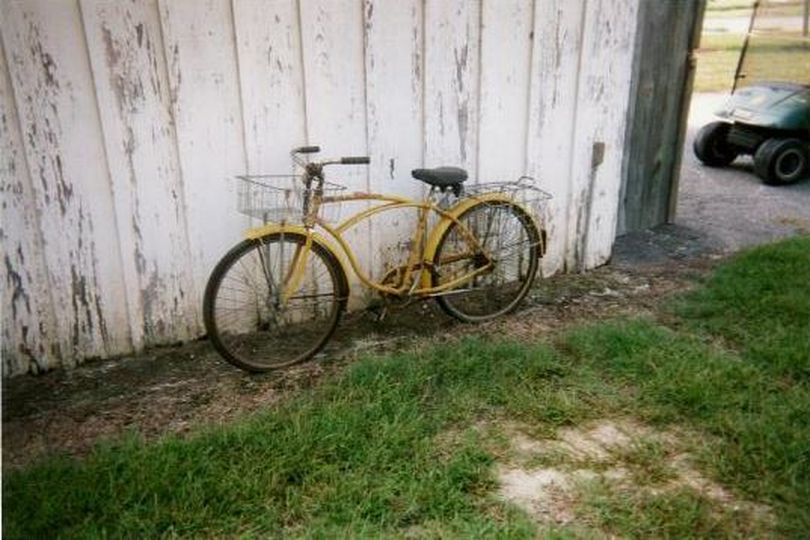Bikes meant freedom to Junius Wilson

Junius Wilson is a man to know about.
His story is one of injustice, racism and the destructive power of stereotypes against those living with disabilities.
It's also one of the redemptive power of bikes.
The National Museum of American History has a great article on Wilson's life, complete with photos, describing one of the lesser known stories in our nation's past.
As the post, called "To Junius Wilson, bikes meant freedom," on the museum's O Say Can You See? blog, shows, Wilson faced many obstacles in life, many imposed by the society he was born in to. His bike helped him overcome some.
Wilson, born in 1908, was apparently wrongfully accused of a criminal act as a teenager, found insane by a jury, and sentenced to a psychiatric hospital in his home state of North Carolina, where he spent the rest of his life. Wilson was a young, deaf, and African American man from a struggling rural town. For many decades, no one learned to communicate with him in his language, including during court proceedings. After the 1928 Supreme Court decision legalizing sterilization of people in institutions, he was castrated. His family traveled to the hospital after World War II to seek his release but were turned away. Despite being deemed sane, he remained institutionalized.
When Wilson was in his 80s, at the instigation of a social worker and lawyers who looked at his file and understood the outrageous miscarriage of justice, Wilson was released from the locked wards and given a settlement from the state. He lived the last few years of his life in a cottage on the hospital grounds. He died in 2001. (Check out the book Unspeakable: The Story of Junius Wilson to learn more about his life.)
...
He owned three bikes in his life while imprisoned in the psychiatric hospital. Perhaps the freedom to ride around the grounds and into town on a special occasion relieved the monotony as well as announced his ownership of something. The objects that we use make public statements about us—about our competency, identity, domain. Wilson's yellow Schwinn with two wire baskets said a lot about him. His bikes were not given to him. He wanted one and went after it. He was a man with aspiration, even if only to get out and ride across the grounds. His bike gave him alone time with a machine that he owned and controlled, even if sporadic and restricted by imposing institutional boundaries. The injustices done to Mr. Wilson no doubt preyed on him throughout his life. Yet he not only managed to get one bike, he got another and another. His keeping on with bikes, his companionship with self-propelled freedom, and his mastery of balance and steady pedaling over the uneven grounds give us a glimpse of his internal life, even though he left no papers and most of the people around him never learned to communicate with him.
His is a powerful human story, to say the least, and though he spoke little, he always had the power to ride.
